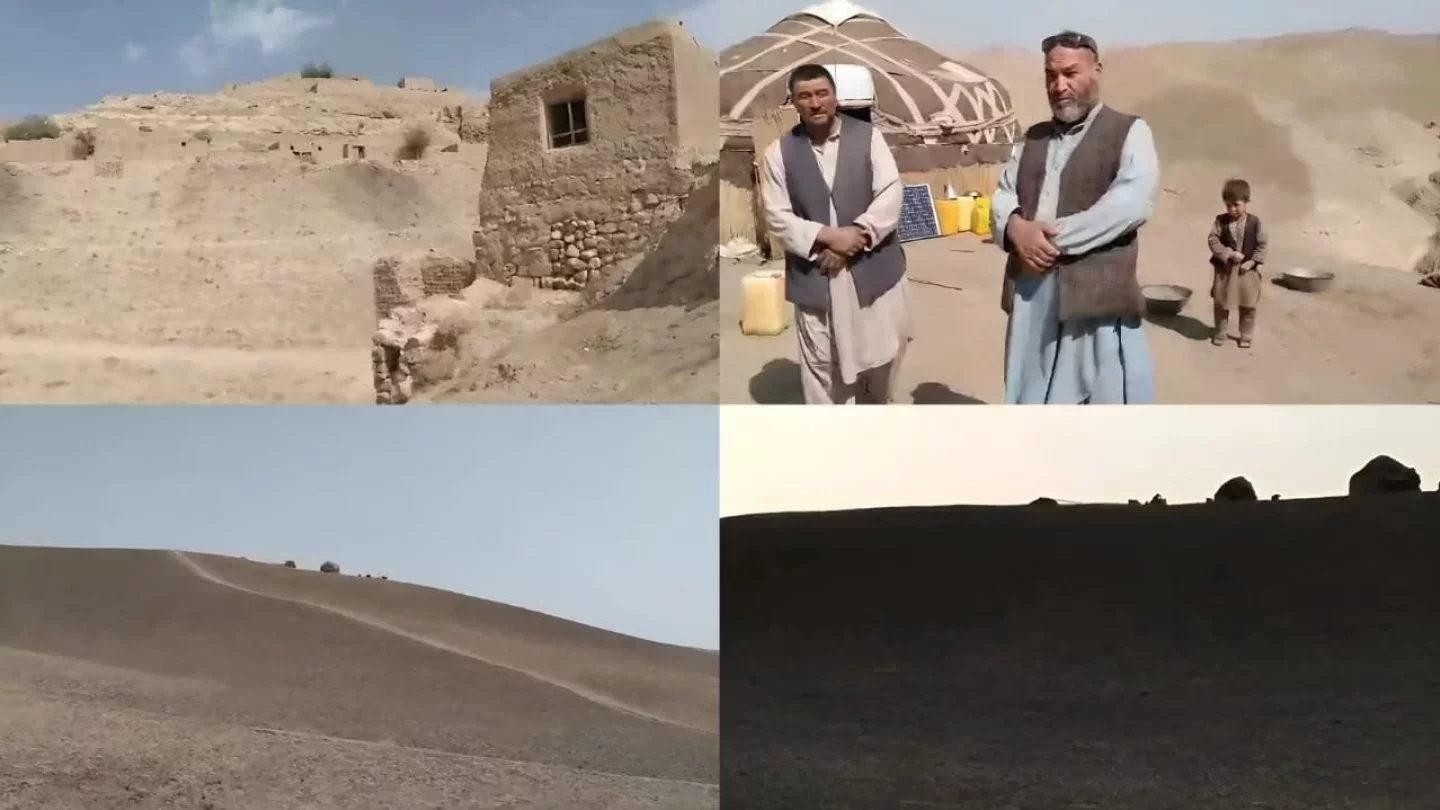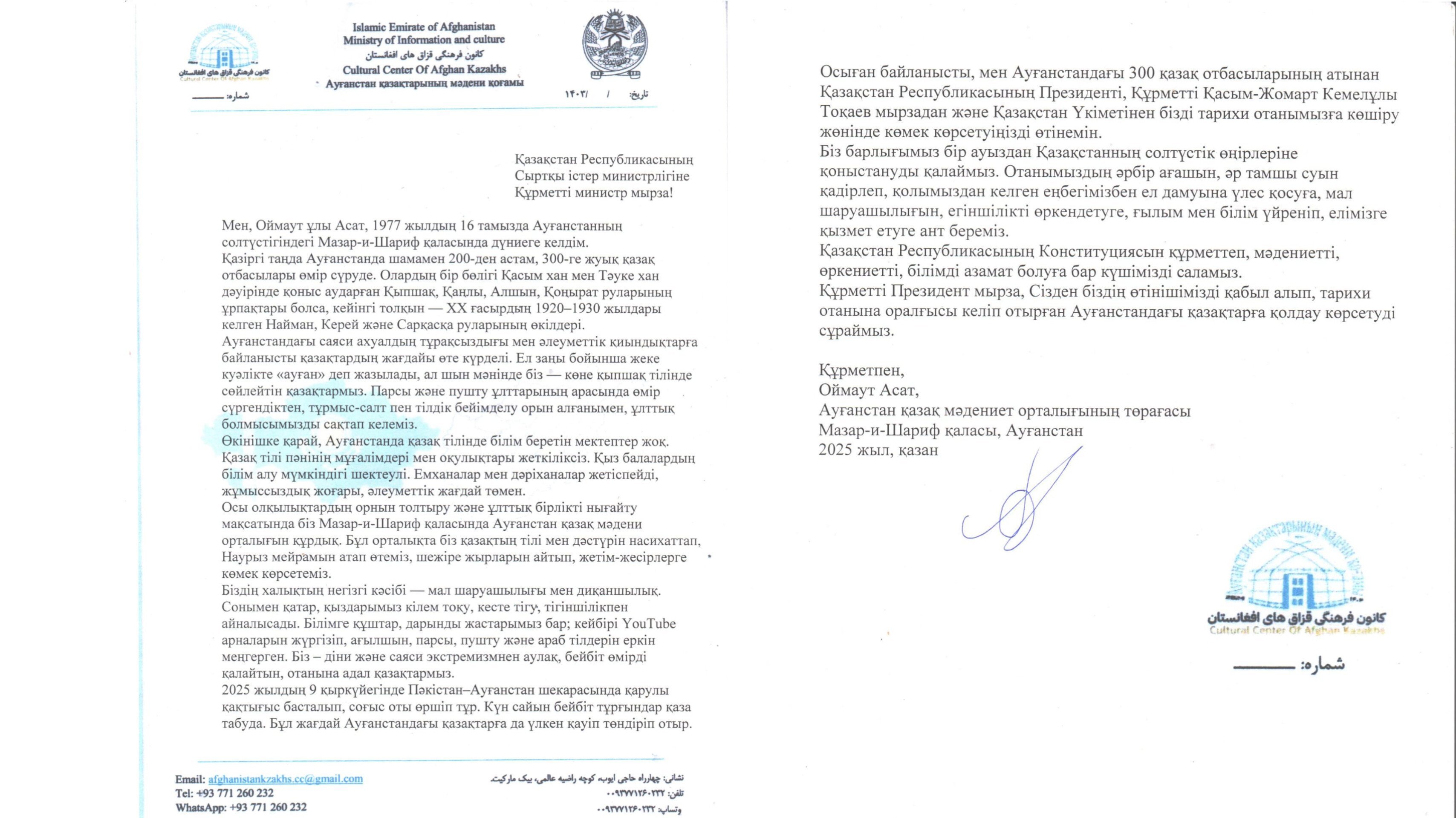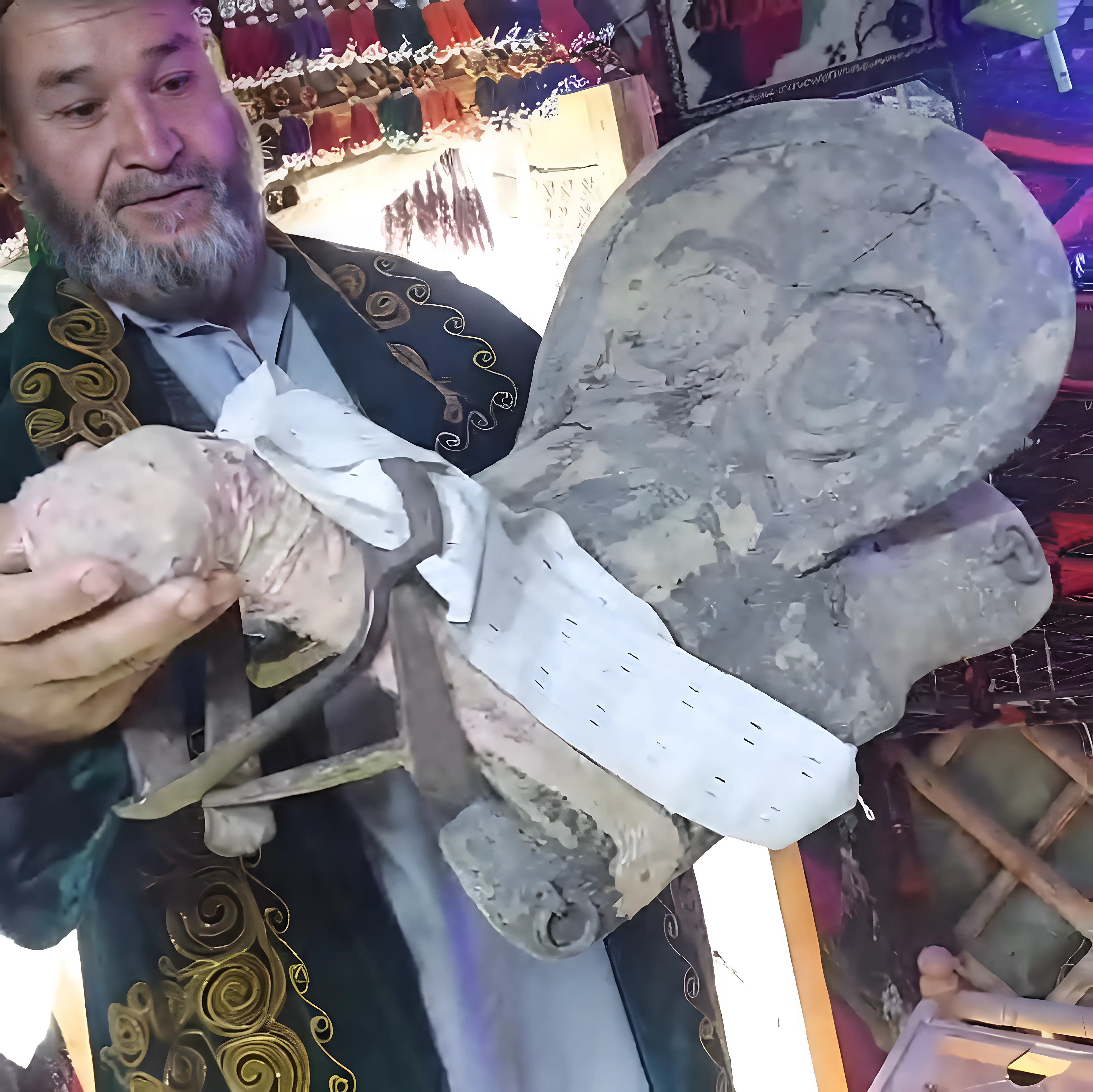Afghanistan: Ethnic Kazakhs Seek Return to Homeland Amid Ongoing Instability
 Photo: Orda collage
Photo: Orda collage
A year ago, Orda.kz reported on the situation of Kazakhs living in Afghanistan and their wish to return to their ancestral homeland.
On October 11, armed conflict again broke out between Afghanistan and Pakistan.
Although it has since subsided, Afghan Kazakhs, fearing for their families, have sent a letter to Kazakh President Qasym-Jomart Toqayev requesting help in returning to Kazakhstan.

With the Taliban’s rise to power, Afghanistan’s economy has sharply declined under sanctions. Alongside harsh living conditions, the country has become isolated and governed under strict Islamic law.
In late September, under the pretext of “fighting immorality,” the Taliban shut down the internet completely.
Freedom of speech and media are absent, and women are required to wear burqas and cannot study beyond sixth grade. Many countries have yet to recognize the Taliban government, though Russia officially did so in July.
Armed clashes continue to erupt periodically along the Afghan-Pakistani border, often resulting in casualties among service members. Although a ceasefire is currently in place, future conflict remains uncertain. Concerned for their safety, Afghan Kazakhs have appealed to the Kazakh Foreign Ministry and directly to President Toqayev.
In a letter, Haji Asat Oymauyt, chair of the Afghan Kazakh Cultural Center, noted that about 200–300 Kazakh families live in Afghanistan:
Some of them are descendants of the Kipchak, Kangly, Alshyn, and Konyrat clans, who migrated during the reign of the khans Kasym and Tauke. Another wave consists of Naiman, Kerey, and Sarkask people, who arrived in the 1920s and 1930s. Due to political instability and harsh social conditions, life for Kazakhs here is extremely difficult. By law, our identity cards list us as 'Afghans,' although in reality we speak the ancient Kipchak language — we are Kazakhs.
Although Afghan Kazakhs have adopted elements of Persian and Pashtun culture and language, they have preserved their national identity.
Oymauyt also wrote that there are no schools in Afghanistan teaching in Kazakh.
Despite this, the Afghan Kazakh Cultural Center was established:
There's a shortage of Kazakh language teachers and textbooks. Girls are deprived of education. There are a shortage of medical facilities and pharmacies, unemployment is high, and the social situation is dire. To fill these gaps and strengthen national unity, we opened the Afghan Kazakh Cultural Center in Mazar-i-Sharif. Here, we promote the Kazakh language and traditions, celebrate Nauryz, recite the Shezhire prayer, and help orphans and widows.
He described the daily life of Kazakh families in Afghanistan, emphasizing their peaceful nature and distance from politics or extremism:
Our people's main occupations are livestock farming and agriculture. Our girls are involved in carpet weaving, embroidery, and sewing. Among us are talented young people who strive for knowledge: some run YouTube channels and are fluent in English, Persian, Pashto, and Arabic. We are far from religious and political extremism; we are peace-loving Kazakhs devoted to our homeland.
A Direct Appeal
In September, renewed fighting on the Afghan-Pakistani border caused civilian deaths.
Oymauyt stressed the danger faced by Kazakhs in Afghanistan and appealed directly to President Toqayev and the government for help with resettlement:
The flames of war continue to rage. Civilians are dying every day. This situation also poses a serious threat to Kazakhs living in Afghanistan. Therefore, on behalf of the 300 Kazakh families living in the country, I ask the President of the Republic of Kazakhstan, highly respected Qasym-Jomart Kemelevich Toqayev, and the government of Kazakhstan to assist us in resettling to our historical homeland. We wish to settle in the northern regions of Kazakhstan.

He added that Afghan Kazakhs are ready to contribute to the country’s development:
We vow to value every tree and every drop of water in our homeland, to work for the good of the country, to develop livestock farming and agriculture, to study and serve Kazakhstan. We pledge to respect the Constitution of the Republic of Kazakhstan and to strive to be cultured, educated, and civilized citizens. Esteemed Mr. President, we ask you to accept our request and support the Kazakhs from Afghanistan who wish to return to their historical homeland.
If Not Us, Then Who?
If Kazakhstan does not support its compatriots abroad, no one else will.
Kazakhs living in foreign lands face challenging conditions, but they have preserved their language and culture.
With assistance, they could return and reintegrate into Kazakh society. Even if the older generation struggles to adapt, their children — like descendants of Kazakhs from China, Mongolia, and Uzbekistan — would be able to study, receive an education, and become citizens of Kazakhstan.
Original Author: Didar Kairat
Latest news
- Convicted for Corruption: Ex-Deputy Akim Known for Praising Nazarbayev Seen at Celebration
- Man Serving Sentence in Abay Region Dies, KUIS Confirms
- Kazakhstan May Begin Supplying Uranium to Finland
- Thousands of Railcars Backed Up at the Chinese Border as Temir Joly Restricts Exports
- Financing for Oskemen and Semey Power Plants Not Yet Determined
- EAEU: Russia Introduces Temporary Rules for Goods from Kazakhstan and Kyrgyzstan
- ForteBank Issues $400 Million in Perpetual Subordinated Bonds
- Afghanistan: Ethnic Kazakhs Seek Return to Homeland Amid Ongoing Instability
- Kazakhstan Still Seeking Investor for Yekibastuz Power Plant Project
- Kazakhstan: Vice Energy Minister Comments on Experts' Concerns Over Possible Diesel Shortage Amid Low Prices
- Five Foreign Nationals Detained in Almaty for Planning Terrorist Attack — KNB
- Kyrgyz Court Labels Three Independent Media Outlets “Extremist”
- Lukoil Decides to Sell Foreign Assets Following U.S. and U.K. Sanctions
- Truck Carrying Ukrainian Chocolate Turned Back at Kazakhstan–Russia Border
- Italian Court Backs Extradition Ruling of Nord Stream Sabotage Suspect, Defence Appeals
- Toqayev Holds Another Phone Call with Putin
- Kazakhstan Welcomes Thailand–Cambodia Peace Declaration Signed at ASEAN Summit
- Kyrgyzstan Opens Criminal Case Against Dmitry Bivol’s Ex-Wife
- Armenia: Authorities Open New Criminal Case Against Gyumri Mayor
- Why Did Lukoil Receive Projects in Kazakhstan Without a Competition?

